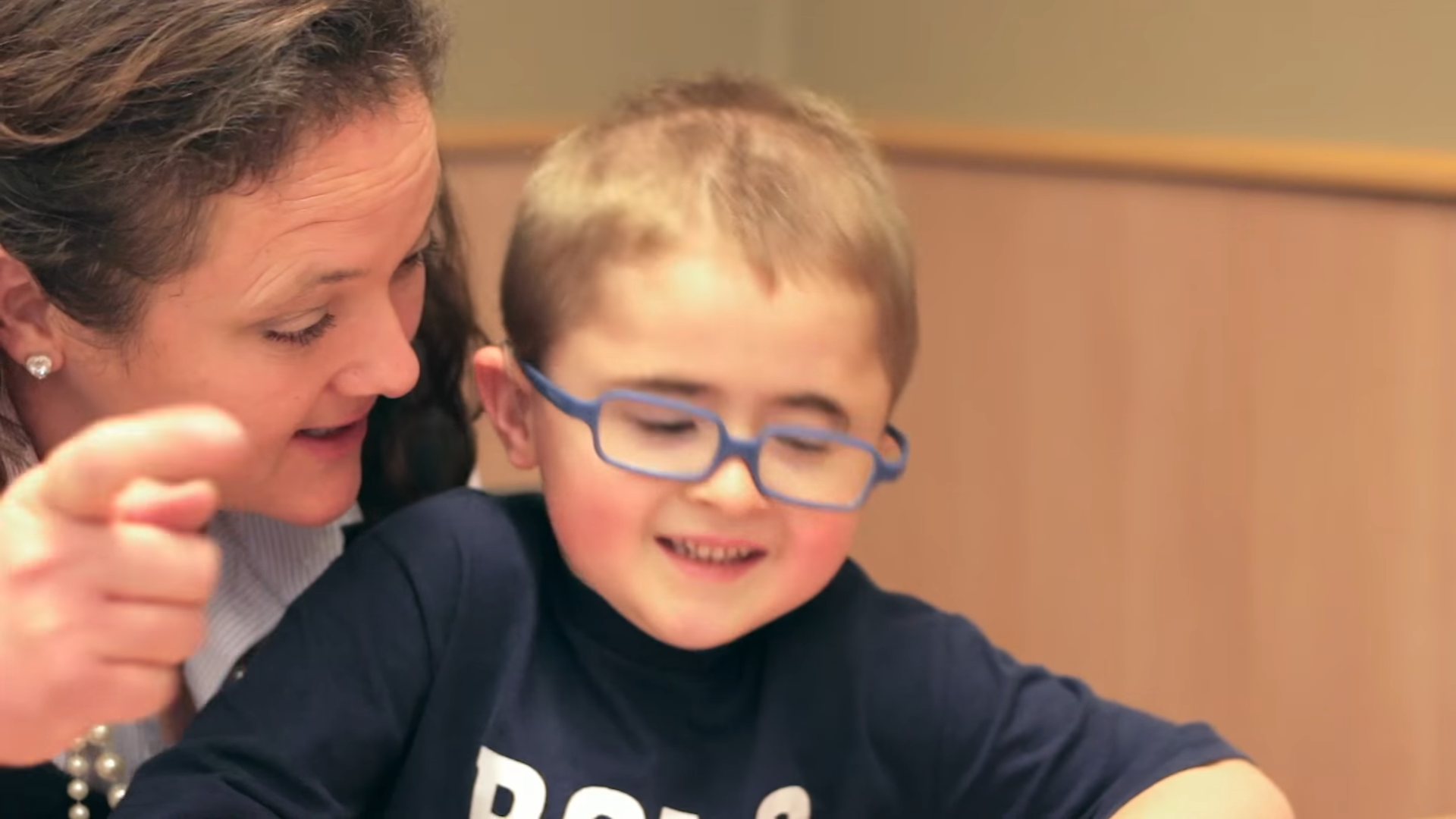Intellectual Characteristics in Kleefstra Syndrome
The term ’intellectual disability’ means that a person has a global development delay in both intellectual functioning and adaptive behaviour (everyday practical skills) in comparison to other individuals of the same age. For difficulties to be understood as an intellectual disability they have to have been present before adulthood.
Intellectual disability is sometimes described as mild, moderate, severe or profound. This indicates degree of disability and is based on each individual’s adaptive (everyday living) skills. In addition, individuals with intellectual disability will have an IQ score below 70 on assessments of cognitive ability (average IQ is between 90 and 109). Not all professionals agree that these categories are helpful as a single 'category' may not fully represent someone's abilities. However, the categories are a useful way to communicate an estimate of someone's general level of functioning.
One of the characteristics of Kleefstra syndrome is intellectual disability. Individuals with Kleefstra syndrome typically have a moderate to severe intellectual disability and will usually have an IQ of less than 70. There are a few individuals with Kleefstra syndrome who have a mild intellectual disability (IQ around 70).
Communication
Current research suggests that individuals with Kleefstra syndrome have a variety of communication difficulties with development varying from individual to individual. Some individuals are able to read and write, whilst others are not.
It is common for babies with Kleefstra syndrome to communicate needs through facial expression, vocal noises and gestures. As stated above, the degree of intellectual disability between individuals varies. Therefore, some children use recognisable words at two years old; however, some children may never reach this point. It is important to note that while many individuals with Kleefstra syndrome will not develop speech or will have very few words, these individuals might understand more than they can express, especially when given extra support such as using pictures or signs (makaton) to communicate.
There appears to be a difference between what a person can say (expressive language) and what a person can understand (receptive language) in Kleefstra syndrome, with the latter being impaired to a lesser degree.
Early intervention is key to helping a child reach their full potential, therefore early referral to Speech and Language Therapy is vital.
The information on this website was developed in collaboration with www.kleefstrasyndrome.org. This is the parental support group for Kleefstra, a well-developed community with an active facebook group and parent support conference. Please visit their website for further information and to get in touch with families of individuals with Kleefstra syndrome.




